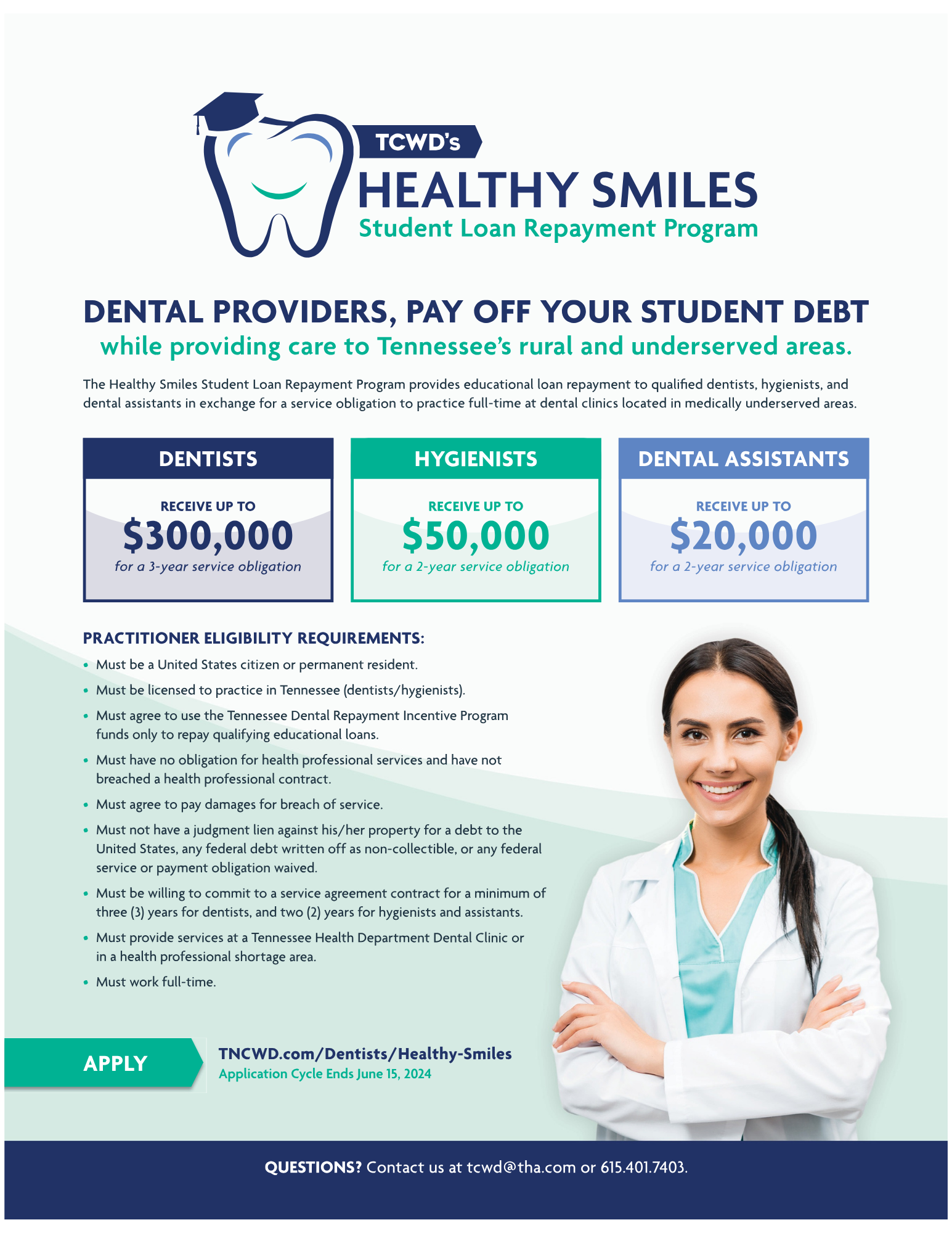 The Healthy Smiles Student Loan Repayment Program provides educational loan repayment to qualified dentists, hygienists, and dental assistants in exchange for a service obligation to practice full-time at dental clinics located in medically underserved areas.
The Healthy Smiles Student Loan Repayment Program provides educational loan repayment to qualified dentists, hygienists, and dental assistants in exchange for a service obligation to practice full-time at dental clinics located in medically underserved areas.
- Dentists receive up to $300,000 for a 3-year service obligation
- Hygienists receive up to $50,000 for a 2-year service obligation
- Dental assistants receive up to $20,000 for a 2-year service obligation
Practitioner Eligibility Requirements:
- Must be a United States citizen or permanent resident.
- Must be licensed to practice in Tennessee (dentists/hygienists).
- Must agree to use the Tennessee Dental Repayment Incentive Program funds only to repay qualifying educational loans.
- Must have no obligation for health professional services and have not breached a health professional contract.
- Must agree to pay damages for breach of service.
- Must not have a judgment lien against his/her property for a debt to the United States, any federal debt written off as non-collectible, or any federal service or payment obligation waived.
- Must be willing to commit to a service agreement contract for a minimum of three (3) years for dentists, and two (2) years for hygienists and assistants.
- Must provide services in a rural or medically underserved area of Tennessee.
- Must work full-time.


 Regional events are an opportunity to learn more about our RCORP program. Register for your region to hear more about substance use disorder, mental health, and Rural Health Association program updates. Lunch will be provided to in-person attendees.
Regional events are an opportunity to learn more about our RCORP program. Register for your region to hear more about substance use disorder, mental health, and Rural Health Association program updates. Lunch will be provided to in-person attendees.  Tuesday, April 9th, we had the opportunity to host our regional event at Paris Landing State Park and see our west region members. Members had the opportunity to h
Tuesday, April 9th, we had the opportunity to host our regional event at Paris Landing State Park and see our west region members. Members had the opportunity to h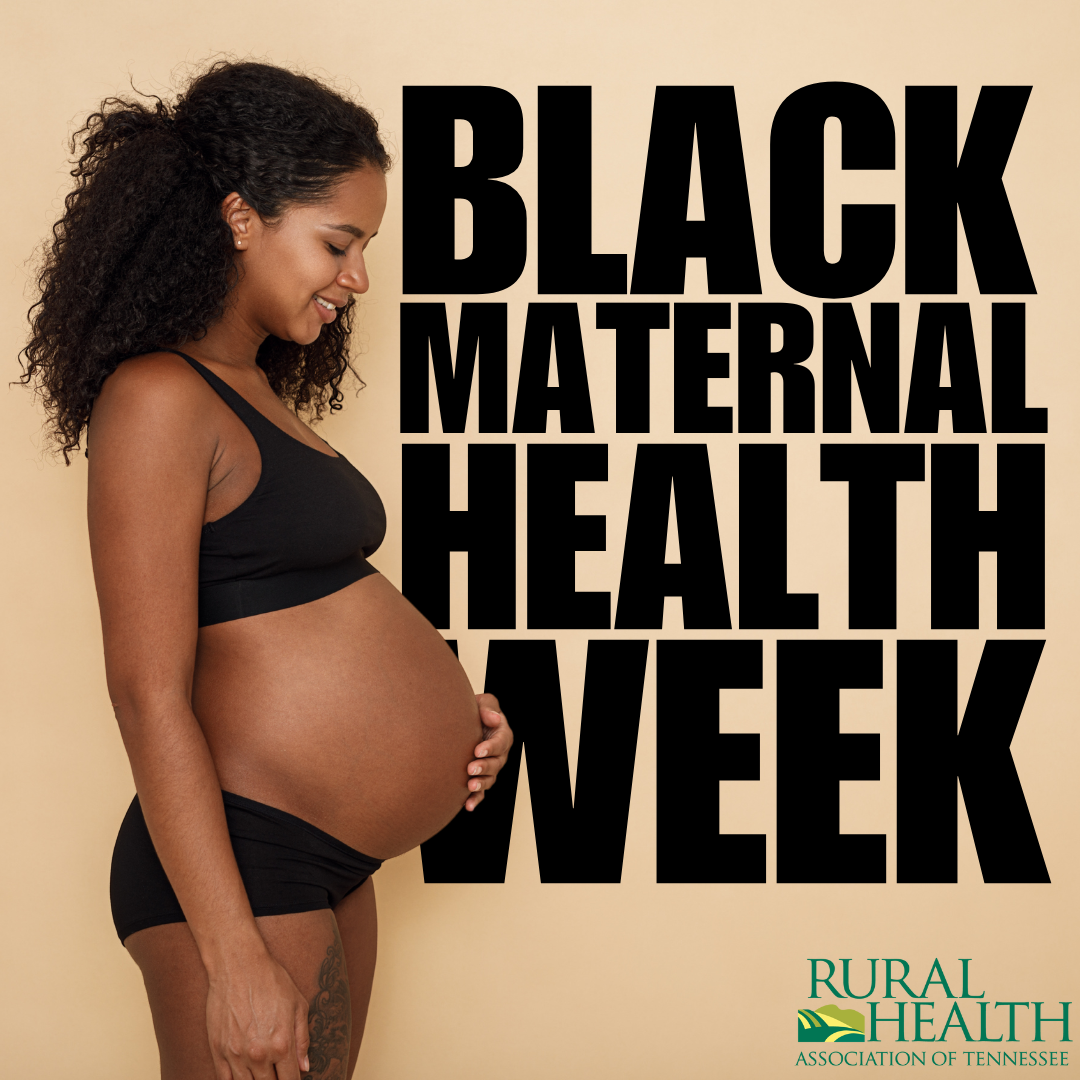 Black Maternal Health Week (BMHW) is a critical initiative aimed at addressing the significant disparities in maternal health outcomes experienced by Black women in the United States. This dedicated week takes place from April 11th-17th and raises awareness about the disproportionate rates of maternal mortality and morbidity among Black women and advocates for policies and interventions to improve Black maternal health outcomes. In rural areas, where access to quality healthcare services is often limited and disparities in healthcare delivery are exacerbated, BMHW holds particular importance in highlighting and addressing the unique challenges faced by Black mothers.
Black Maternal Health Week (BMHW) is a critical initiative aimed at addressing the significant disparities in maternal health outcomes experienced by Black women in the United States. This dedicated week takes place from April 11th-17th and raises awareness about the disproportionate rates of maternal mortality and morbidity among Black women and advocates for policies and interventions to improve Black maternal health outcomes. In rural areas, where access to quality healthcare services is often limited and disparities in healthcare delivery are exacerbated, BMHW holds particular importance in highlighting and addressing the unique challenges faced by Black mothers.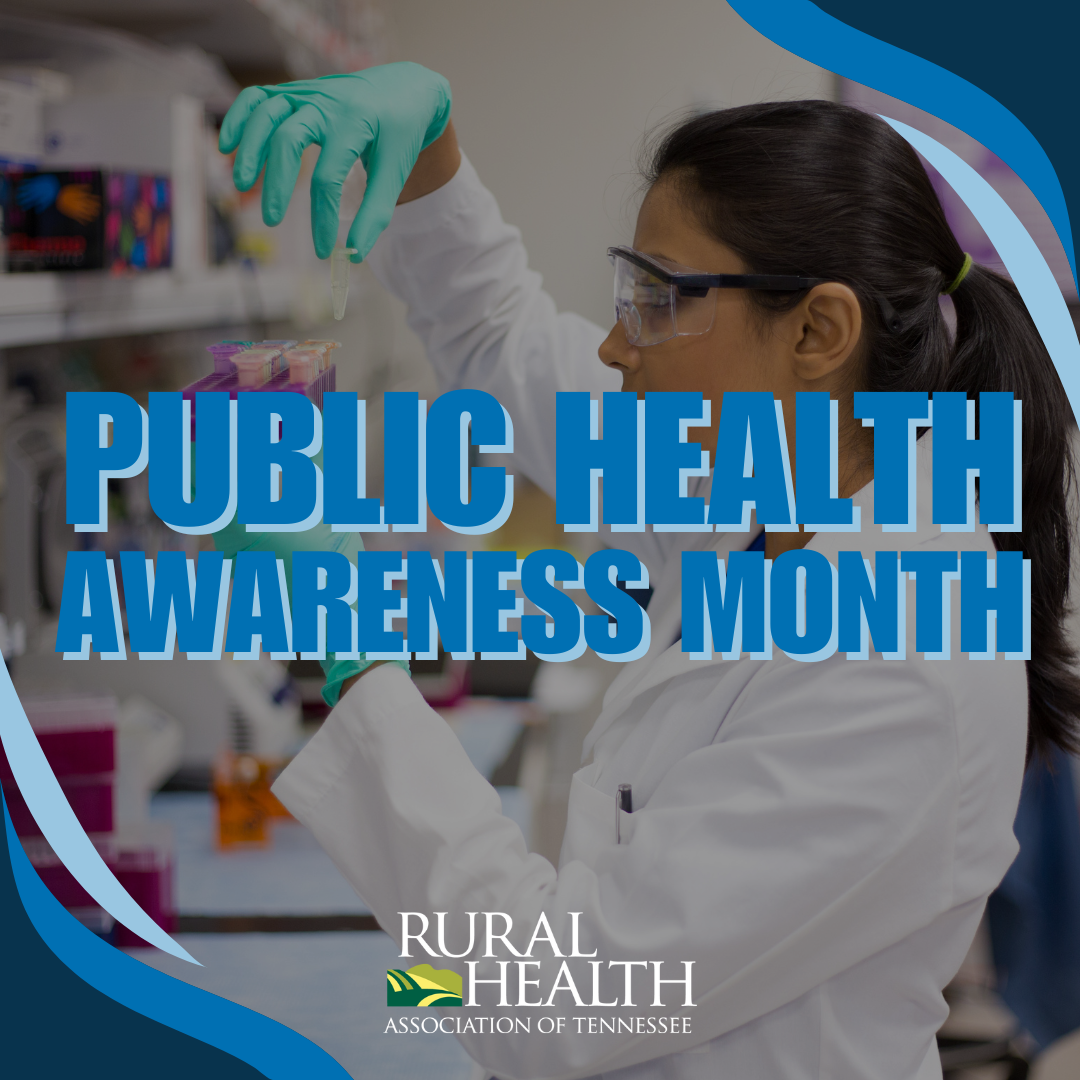 Public Health Awareness Month holds particular significance for rural areas, where access to healthcare services and health education can be limited. In rural communities, residents often face unique challenges such as geographic isolation, limited healthcare infrastructure, and socioeconomic disparities, which can contribute to poorer health outcomes. Public Health Awareness Month provides a crucial opportunity to address these disparities by raising awareness about prevalent health issues and promoting access to healthcare resources in rural areas.
Public Health Awareness Month holds particular significance for rural areas, where access to healthcare services and health education can be limited. In rural communities, residents often face unique challenges such as geographic isolation, limited healthcare infrastructure, and socioeconomic disparities, which can contribute to poorer health outcomes. Public Health Awareness Month provides a crucial opportunity to address these disparities by raising awareness about prevalent health issues and promoting access to healthcare resources in rural areas.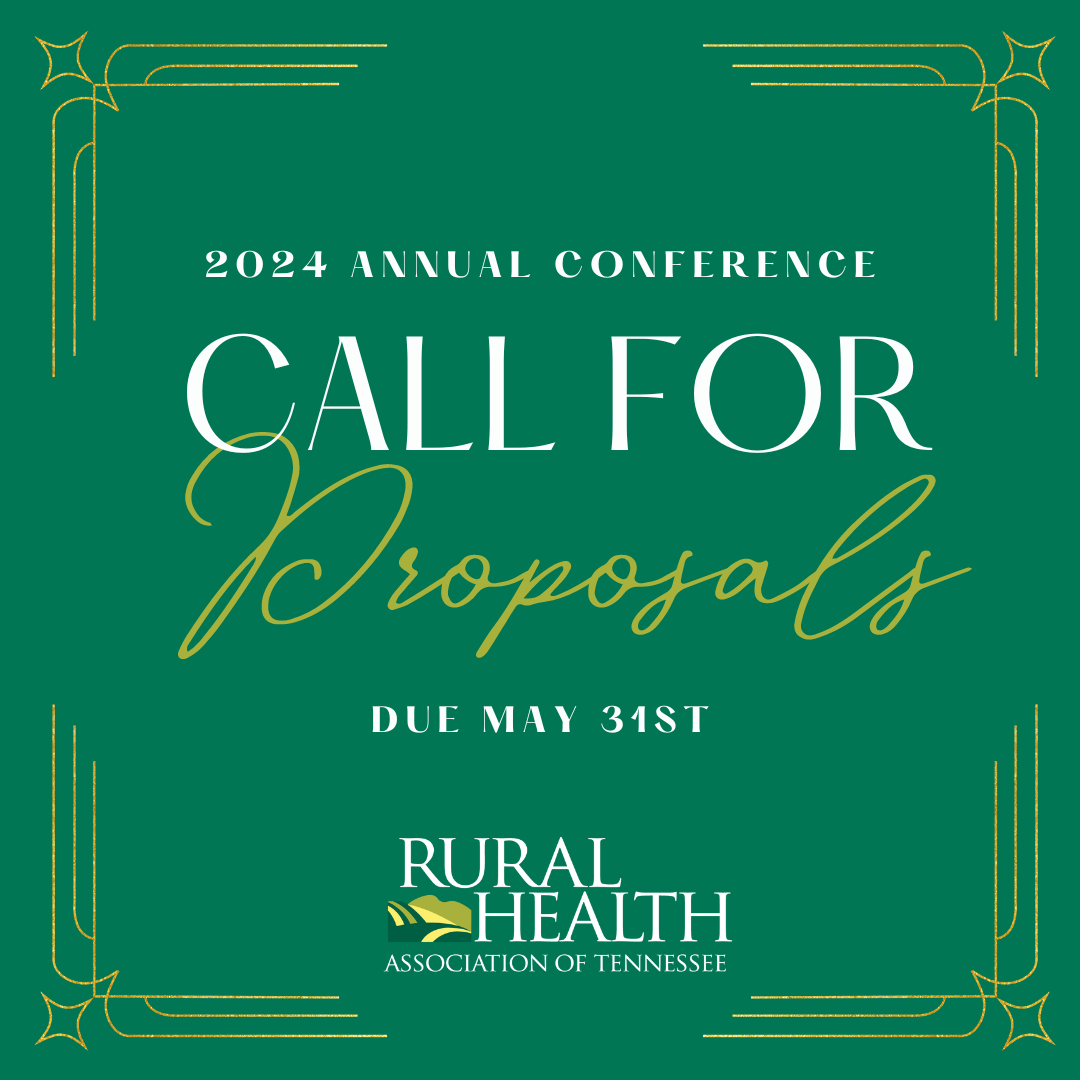 The Rural Health Association of Tennessee's
The Rural Health Association of Tennessee's 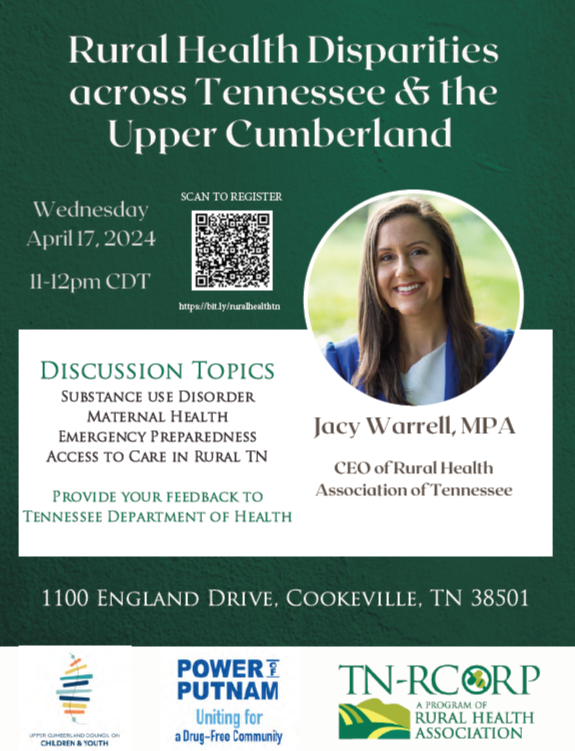 Join us on April 17 from 11AM - 12PM for an informative lunch session hosted by Upper Cumberland Council on Children and Youth, Rural Health Association of Tennessee, and Power of Putnam. Discussion topics will cover substance use disorder, maternal health, emergency preparedness, and access to care in rural TN. Don't miss out on this exciting opportunity to grow and learn together!
Join us on April 17 from 11AM - 12PM for an informative lunch session hosted by Upper Cumberland Council on Children and Youth, Rural Health Association of Tennessee, and Power of Putnam. Discussion topics will cover substance use disorder, maternal health, emergency preparedness, and access to care in rural TN. Don't miss out on this exciting opportunity to grow and learn together!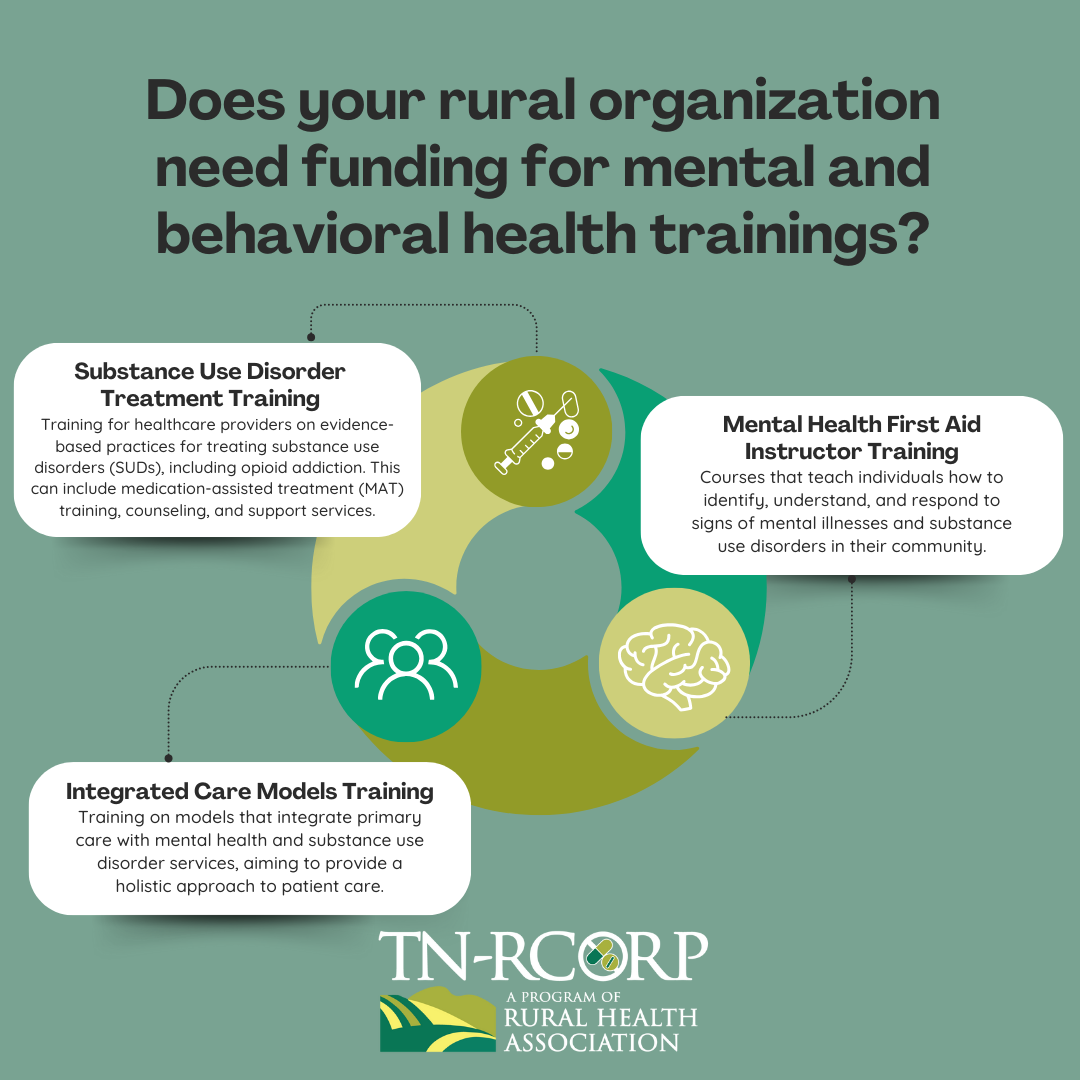 The Rural Health Association is offering funding for
The Rural Health Association is offering funding for 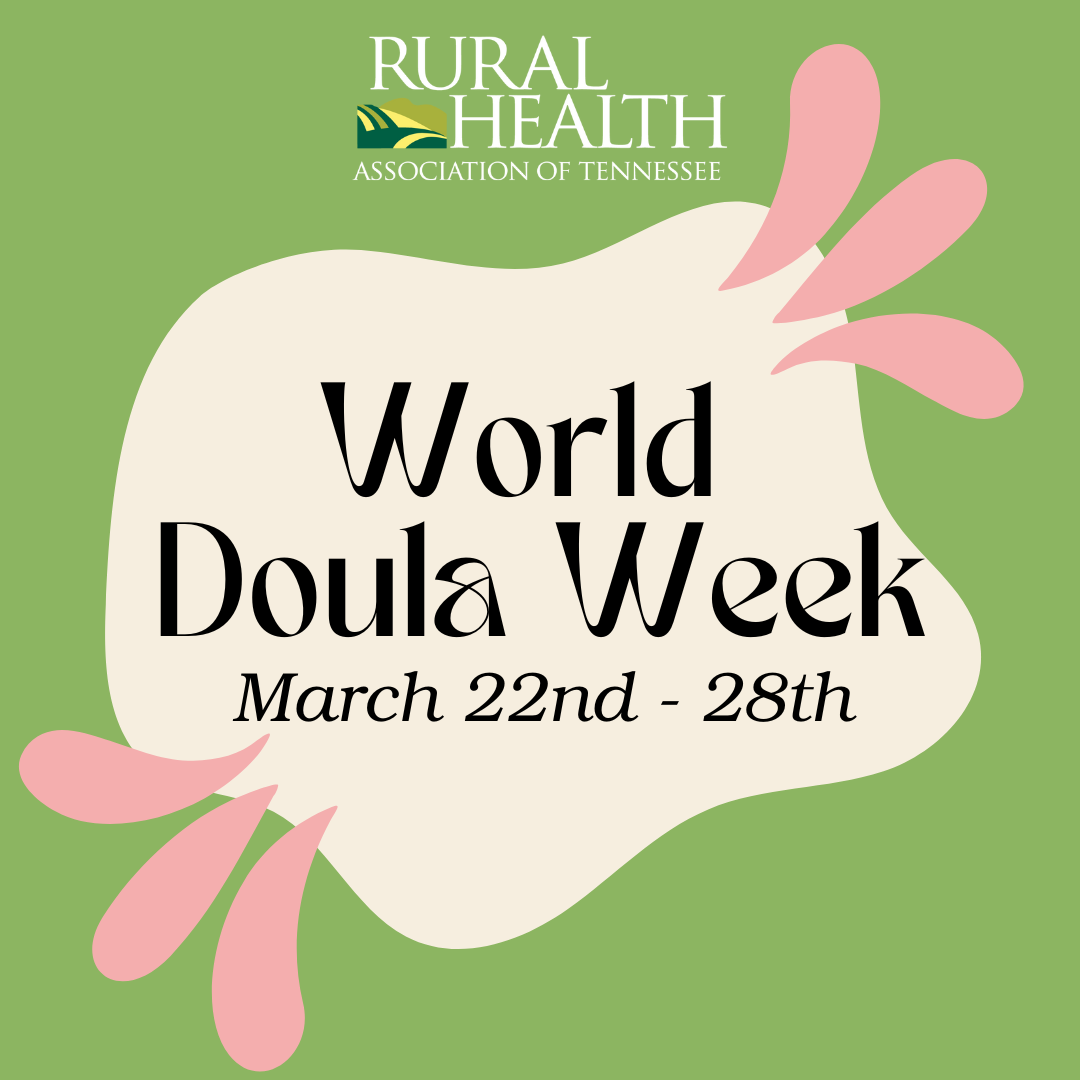 World Doula Week holds significant importance in raising awareness about the invaluable role of doulas in maternal and infant healthcare. Doulas, often referred to as birth companions or birth coaches, provide physical, emotional, and informational support to mothers before, during, and after childbirth. This week-long observance serves as a platform to highlight the vital contributions doulas make in promoting positive birth experiences, reducing medical interventions, and supporting the overall well-being of mothers and babies worldwide.
World Doula Week holds significant importance in raising awareness about the invaluable role of doulas in maternal and infant healthcare. Doulas, often referred to as birth companions or birth coaches, provide physical, emotional, and informational support to mothers before, during, and after childbirth. This week-long observance serves as a platform to highlight the vital contributions doulas make in promoting positive birth experiences, reducing medical interventions, and supporting the overall well-being of mothers and babies worldwide.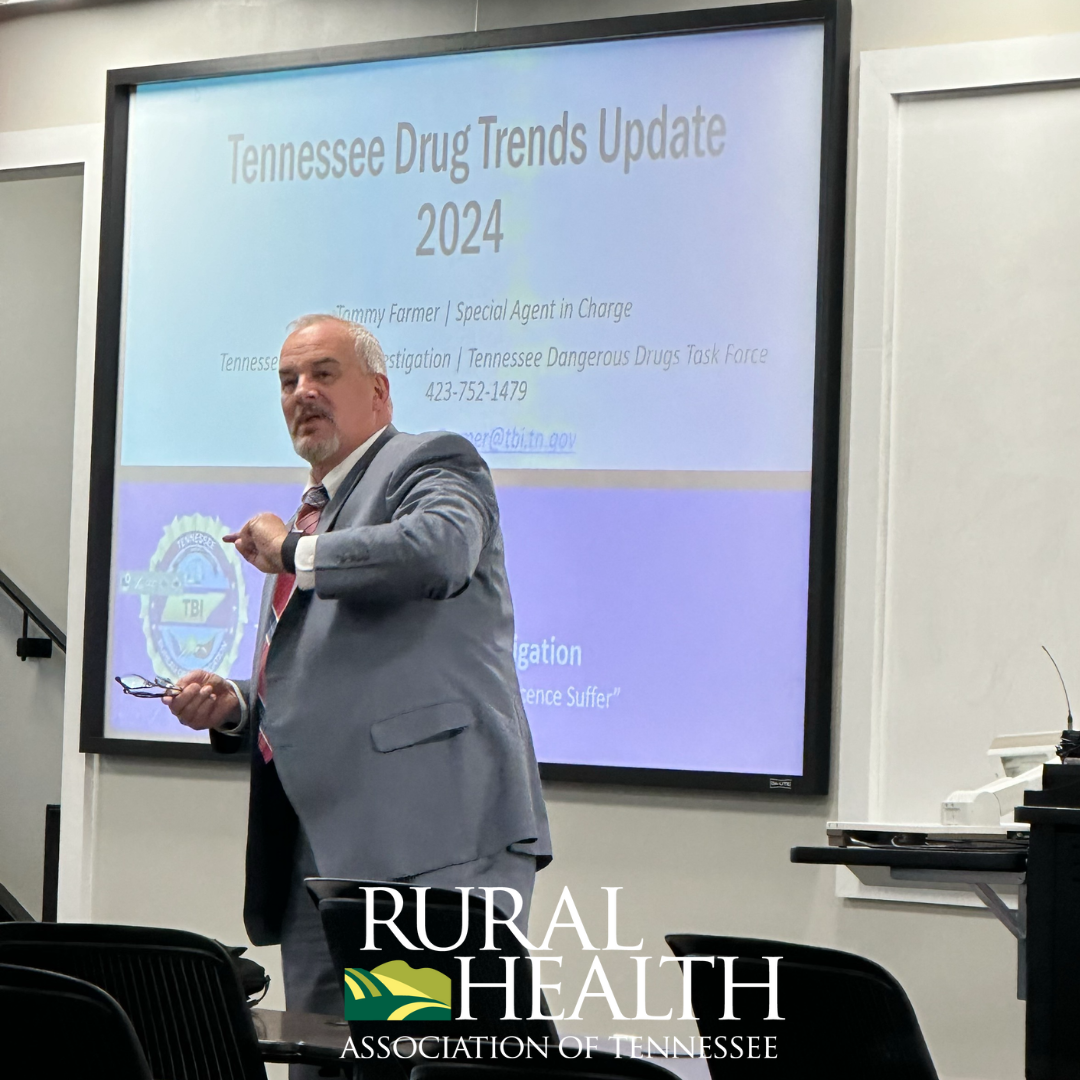 Our 2024 Spring Regional events are in swing! Tuesday, March 19th, we had the opportunity to host our regional event at East Tennessee University and see our east region members. Members had the opportunity to h
Our 2024 Spring Regional events are in swing! Tuesday, March 19th, we had the opportunity to host our regional event at East Tennessee University and see our east region members. Members had the opportunity to h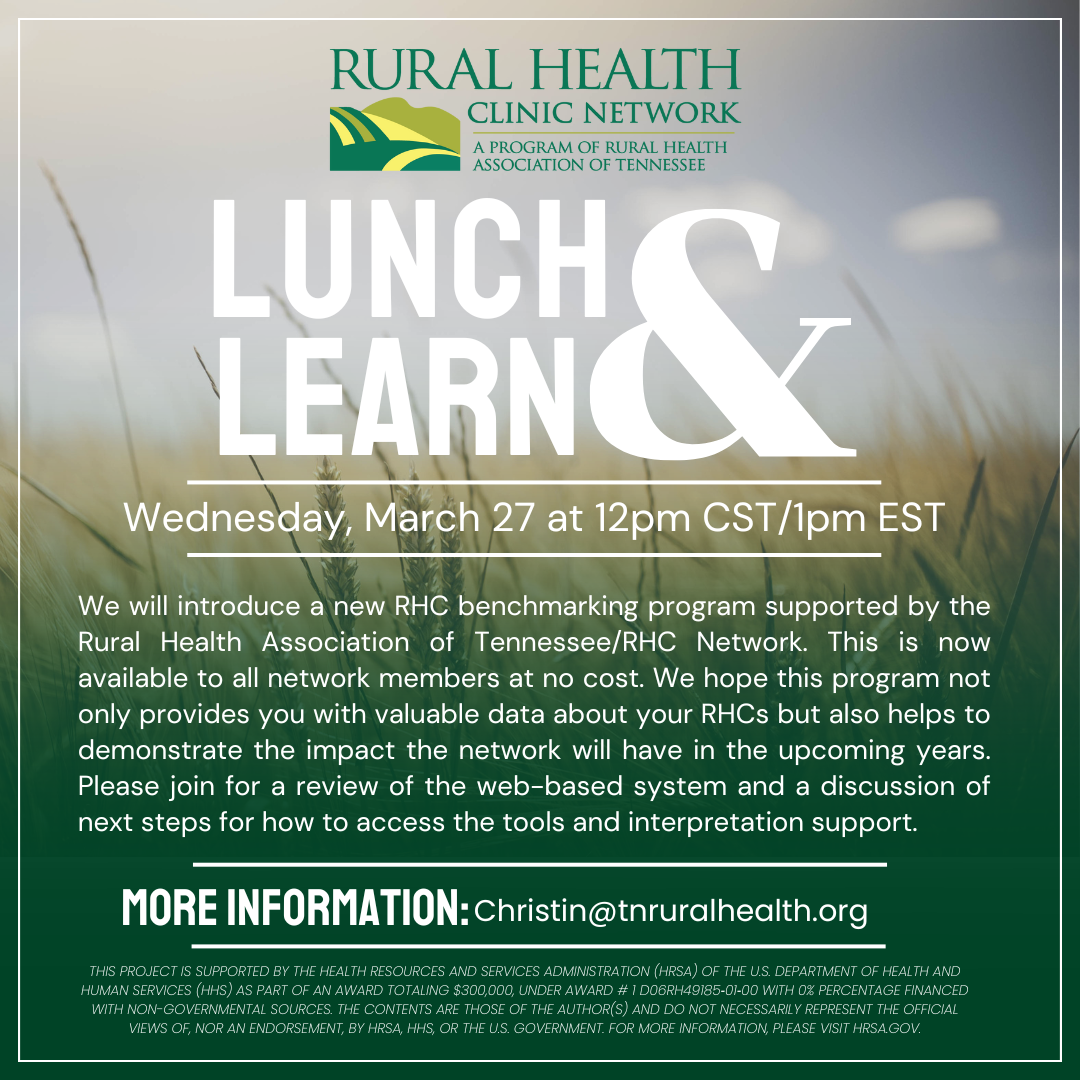 Please join us for our next Lunch and Learn Session on Wednesday, March 27 at 12pm CST/1pm EST where we will introduce a new RHC benchmarking program supported by the Rural Health Association of Tennessee/RHC Network. This is now available to all network members at no cost. We hope this program not only provides you with valuable data about your RHCs but also helps to demonstrate the impact the network will have in the upcoming years.
Please join us for our next Lunch and Learn Session on Wednesday, March 27 at 12pm CST/1pm EST where we will introduce a new RHC benchmarking program supported by the Rural Health Association of Tennessee/RHC Network. This is now available to all network members at no cost. We hope this program not only provides you with valuable data about your RHCs but also helps to demonstrate the impact the network will have in the upcoming years. 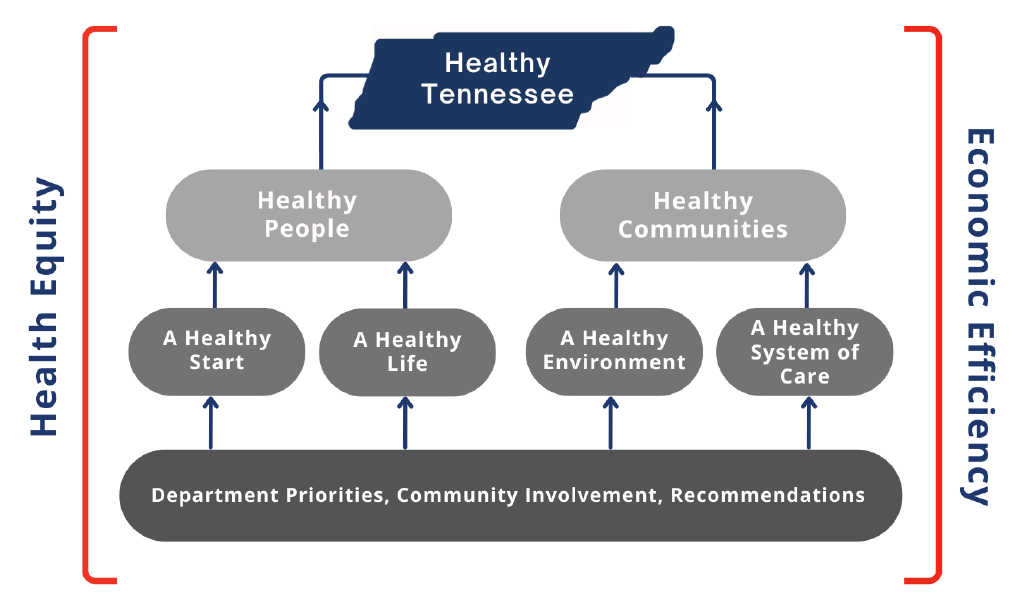 The 2024-2026 State Health Plan seeks to provide a pathway for achieving the Department’s vision: Healthy People, Healthy Communities, Healthy Tennessee.
The 2024-2026 State Health Plan seeks to provide a pathway for achieving the Department’s vision: Healthy People, Healthy Communities, Healthy Tennessee.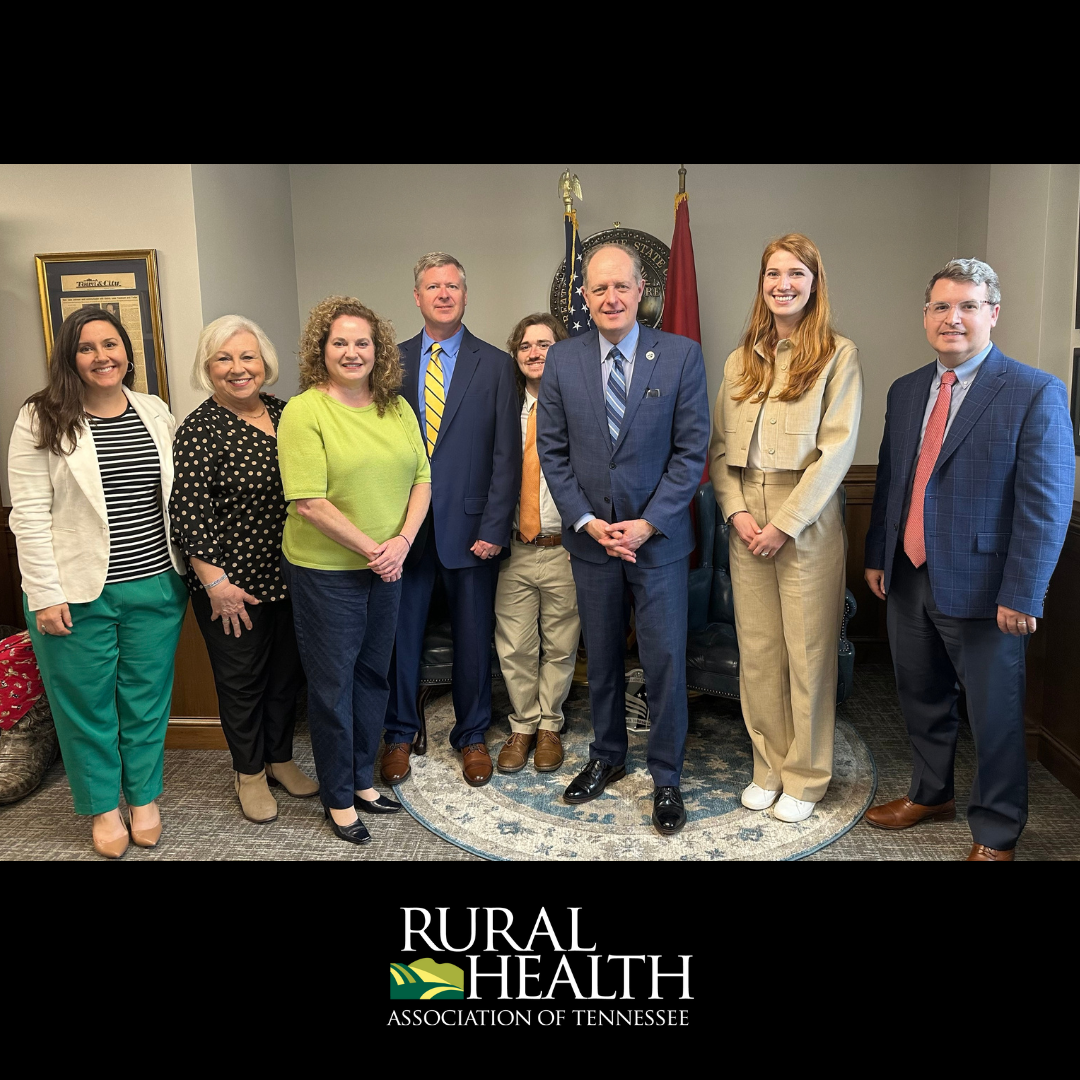 RHA members and staff traveled to Nashville for the Rural Health Association's Day on the Hill March 5th,
RHA members and staff traveled to Nashville for the Rural Health Association's Day on the Hill March 5th,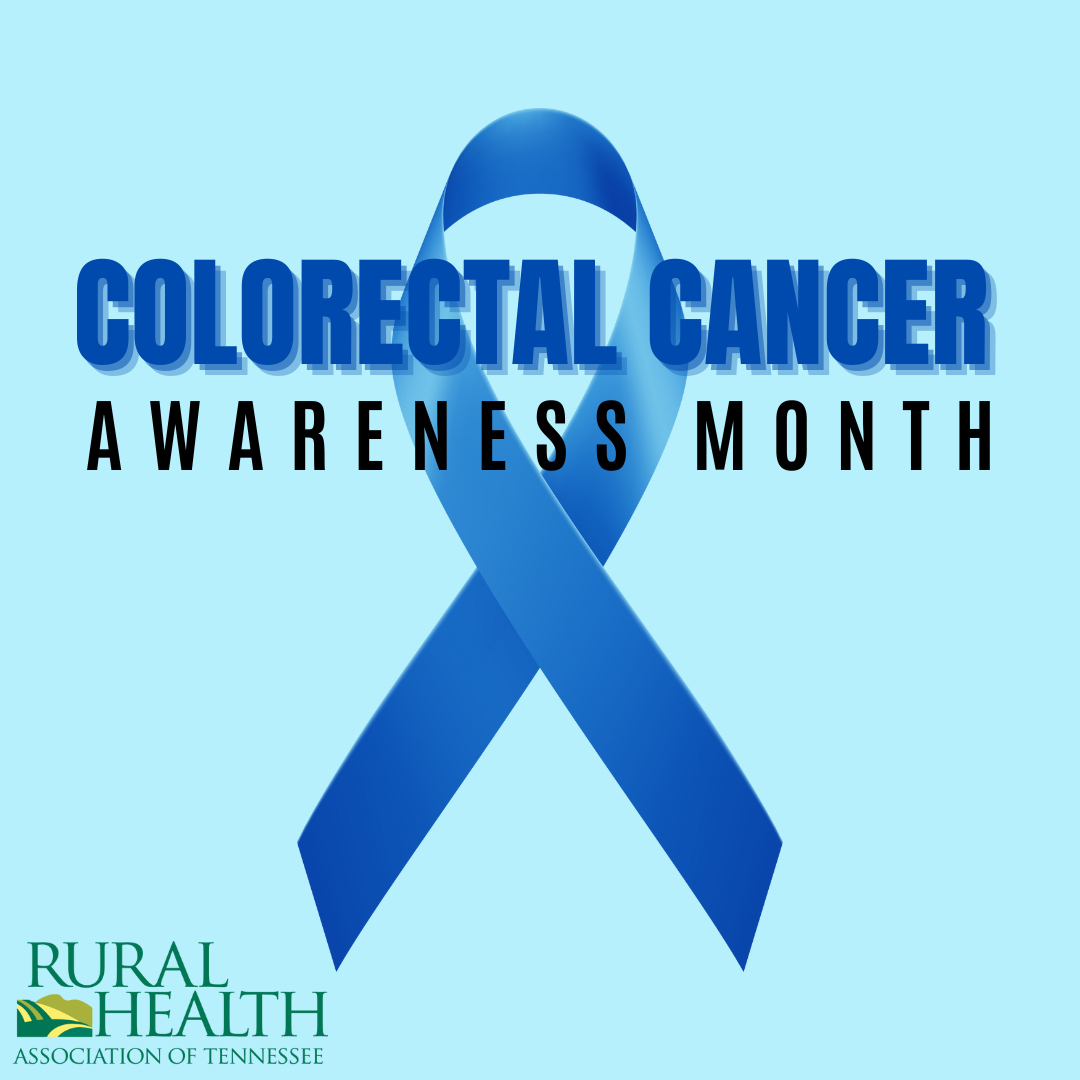 Colorectal Cancer Awareness Month, observed annually in March, serves as a crucial reminder of the importance of understanding and preventing colorectal cancer, which is one of the most common cancers worldwide. This month-long campaign aims to raise awareness about colorectal cancer risk factors, symptoms, screening options, and preventive measures. Through education and advocacy efforts, individuals are encouraged to take proactive steps to reduce their risk of developing colorectal cancer and to promote early detection through regular screenings.
Colorectal Cancer Awareness Month, observed annually in March, serves as a crucial reminder of the importance of understanding and preventing colorectal cancer, which is one of the most common cancers worldwide. This month-long campaign aims to raise awareness about colorectal cancer risk factors, symptoms, screening options, and preventive measures. Through education and advocacy efforts, individuals are encouraged to take proactive steps to reduce their risk of developing colorectal cancer and to promote early detection through regular screenings.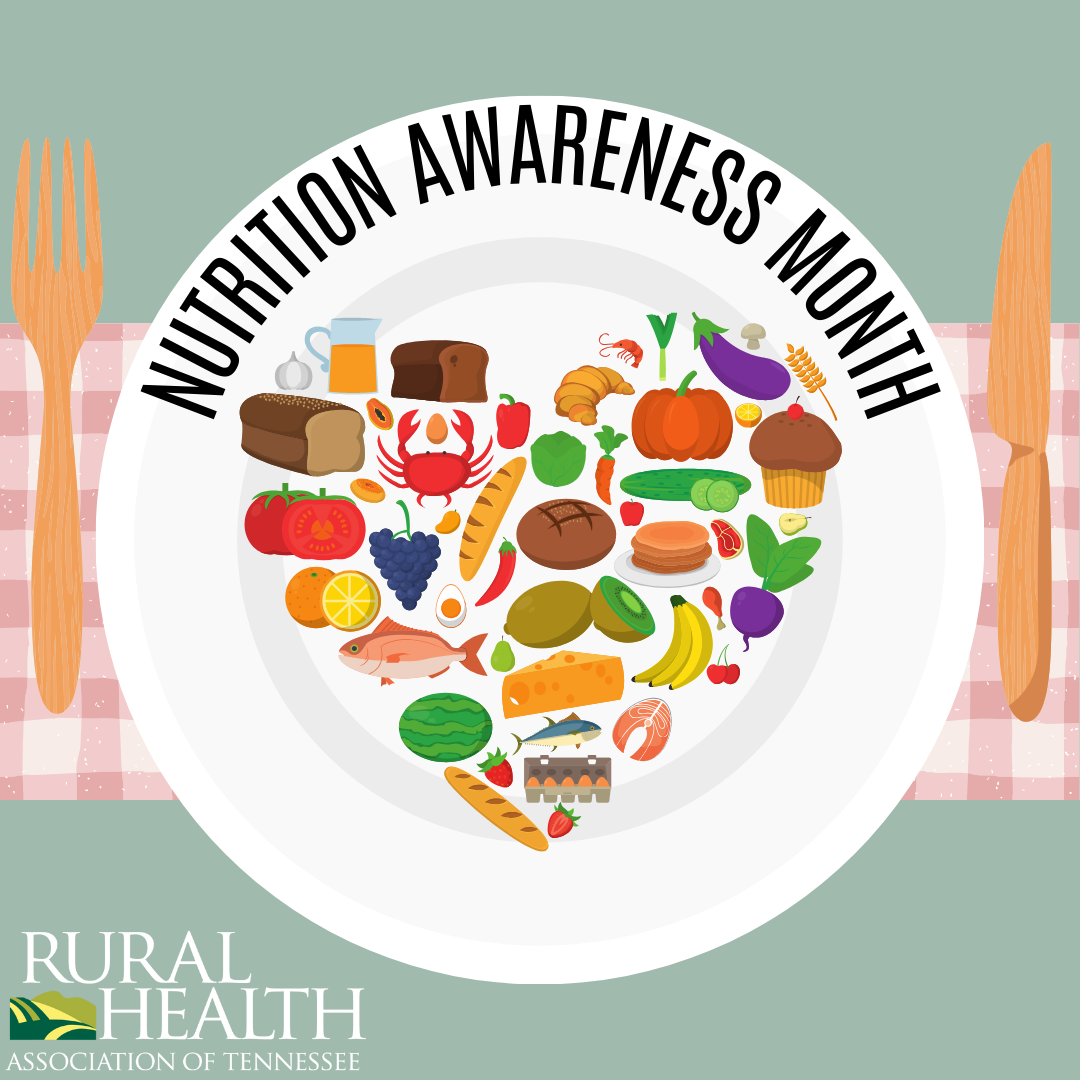 In the United States, food security remains a pressing issue, with millions of individuals and families facing challenges in accessing affordable and nutritious food. Rural areas, in particular, often bear the brunt of food insecurity due to limited access to grocery stores, fewer transportation options, and lower incomes compared to urban counterparts. These challenges are exacerbated by factors such as geographic isolation, limited employment opportunities, and reliance on agriculture, which can be susceptible to fluctuations in crop yields and market prices.
In the United States, food security remains a pressing issue, with millions of individuals and families facing challenges in accessing affordable and nutritious food. Rural areas, in particular, often bear the brunt of food insecurity due to limited access to grocery stores, fewer transportation options, and lower incomes compared to urban counterparts. These challenges are exacerbated by factors such as geographic isolation, limited employment opportunities, and reliance on agriculture, which can be susceptible to fluctuations in crop yields and market prices.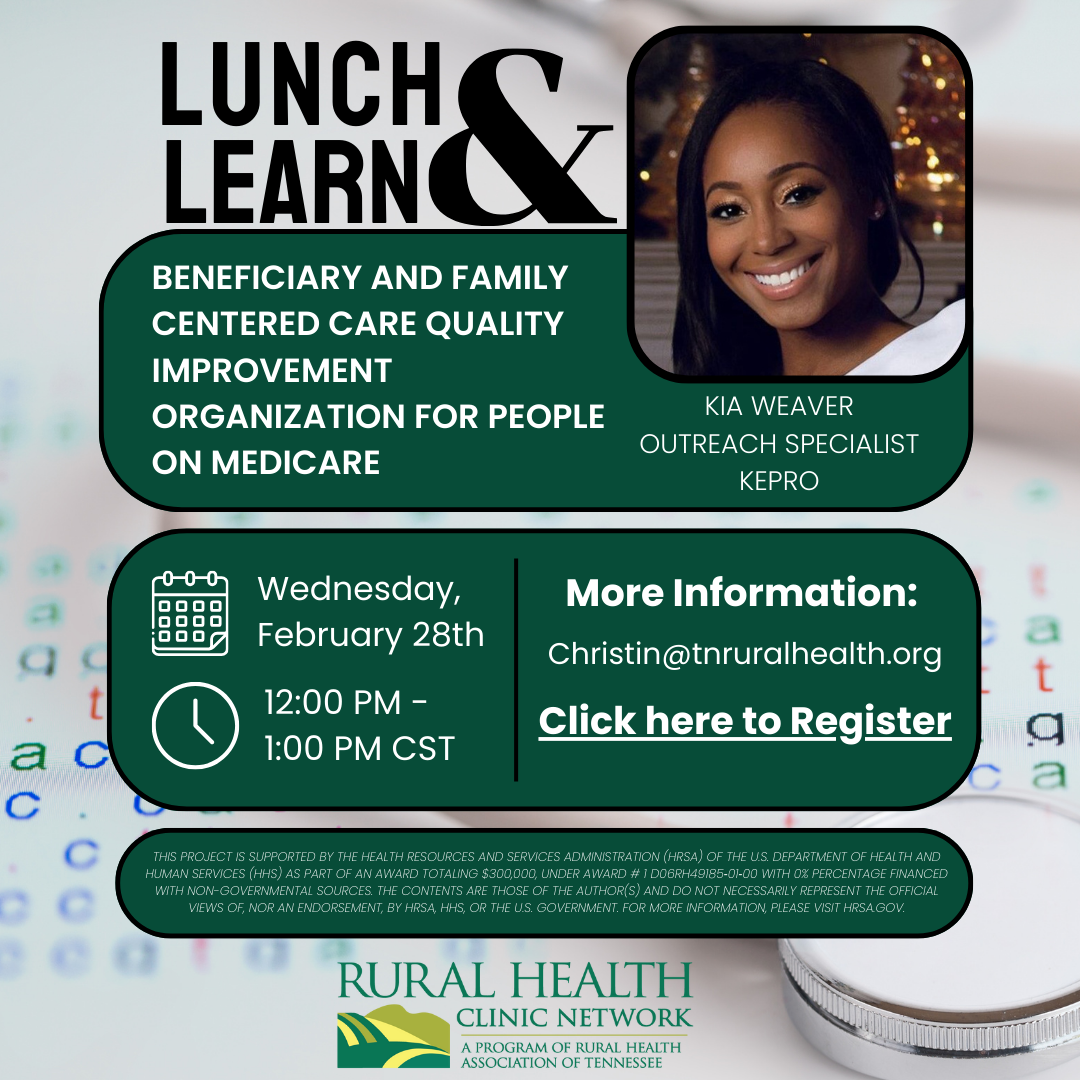 Join us February 28th, 2024 at 12:00 PM CST, for our monthly Rural Health Clinic lunch and learn webinar. This month's guest will be Kia Weaver, Outreach Specialist, with Kepro.
Join us February 28th, 2024 at 12:00 PM CST, for our monthly Rural Health Clinic lunch and learn webinar. This month's guest will be Kia Weaver, Outreach Specialist, with Kepro.